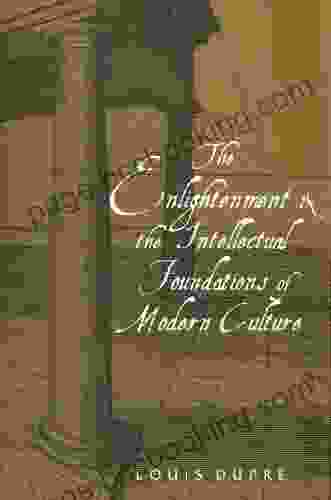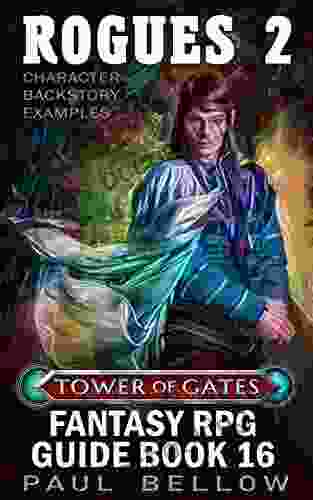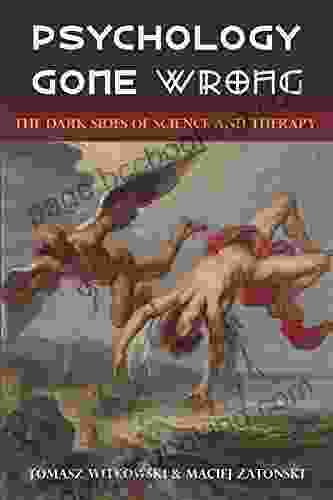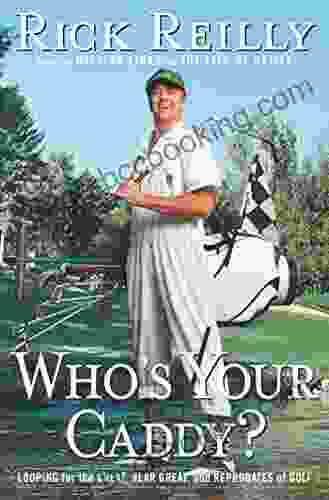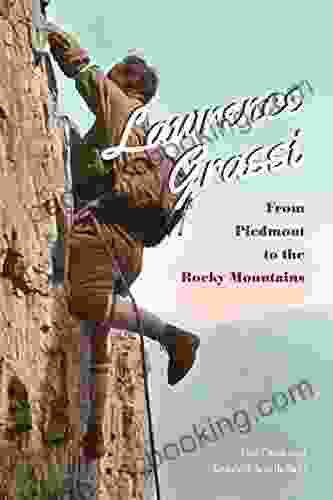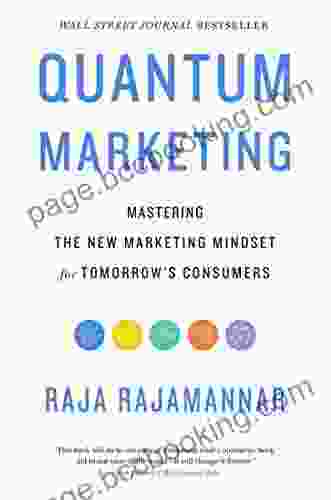Unveiling the Enlightenment: The Intellectual Cornerstone of Modern Society

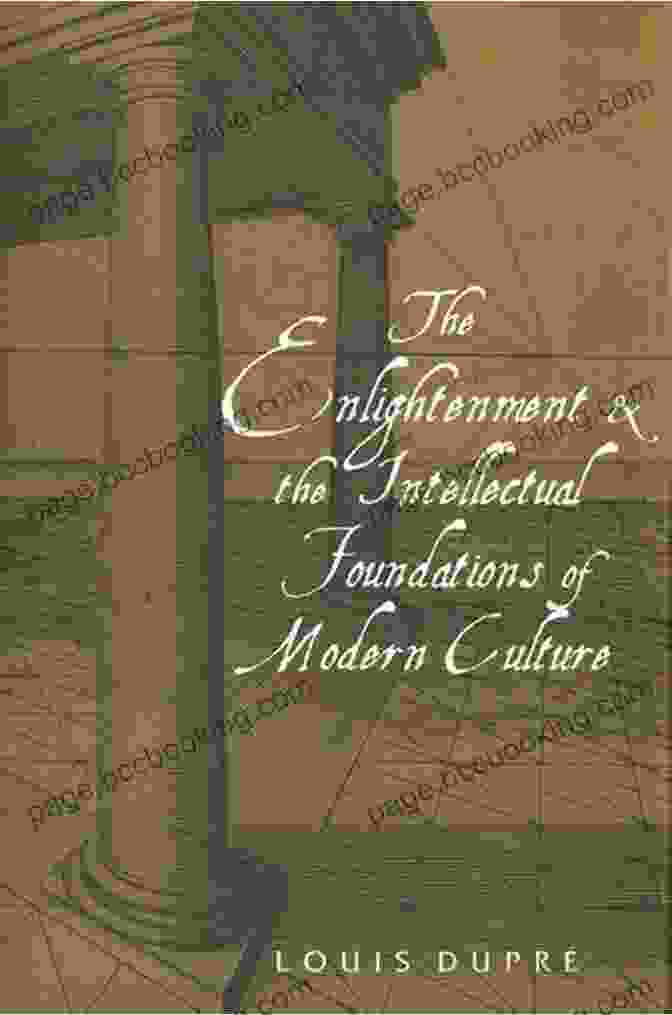
The period known as the Enlightenment, which spanned the 18th century, was a transformative era that profoundly shaped the intellectual landscape of the Western world. It marked a shift away from the traditional reliance on religious dogma and superstition, towards a newfound emphasis on reason, logic, and empiricism. The Enlightenment laid the groundwork for many of the core ideas that underpin modern culture, including the principles of liberty, equality, and individual rights.
4.6 out of 5
| Language | : | English |
| File size | : | 1498 KB |
| Text-to-Speech | : | Enabled |
| Screen Reader | : | Supported |
| Enhanced typesetting | : | Enabled |
| Word Wise | : | Enabled |
| Print length | : | 415 pages |
The Philosophers of the Enlightenment
At the heart of the Enlightenment were a group of brilliant philosophers who challenged established norms and pushed the boundaries of human understanding. Among the most influential figures were:
- John Locke: Locke's philosophy of empiricism emphasized the importance of experience in shaping knowledge. He argued that the mind is a blank slate at birth and that all knowledge is acquired through sensory experiences.
- Voltaire: Voltaire, a staunch advocate of free speech and religious tolerance, famously said, "I may disagree with what you say, but I will defend to the death your right to say it."
- Jean-Jacques Rousseau: Rousseau believed that the natural state of humankind was one of equality and freedom. He argued that society corrupted individuals and that a return to a more natural state was necessary for human progress.
- David Hume: Hume's philosophy of skepticism challenged the foundations of both reason and experience. He argued that human knowledge is limited and that absolute certainty is impossible.
- Immanuel Kant: Kant's philosophy of transcendental idealism attempted to reconcile the ideas of empiricism and rationalism. He believed that the mind actively constructs the world we experience and that our knowledge is shaped by the structure of our own consciousness.
The Scientific Revolution and the Enlightenment
The Enlightenment was closely intertwined with the Scientific Revolution, which had begun in the 16th century. The rise of scientific methods and the emphasis on observation and experimentation led to groundbreaking discoveries in the fields of physics, astronomy, and biology. These discoveries challenged traditional beliefs and opened up new possibilities for human understanding.
The Enlightenment thinkers were greatly influenced by the successes of science and saw it as a model for human progress. They believed that by applying the principles of scientific inquiry to all aspects of human knowledge, it was possible to create a more rational and enlightened society.
The Enlightenment's Legacy
The Enlightenment had a profound impact on the development of Western civilization. Its ideas of liberty, equality, and individual rights became the cornerstone of modern democracies. The emphasis on reason and logic laid the foundation for the development of science, technology, and modern education.
The Enlightenment's legacy continues to shape our world today. Its principles of free speech, religious tolerance, and the separation of church and state are enshrined in the constitutions of many nations. The scientific methods developed during the Enlightenment have led to countless technological advances that have transformed our lives. And the emphasis on individual rights and self-determination has inspired countless movements for social justice and equality.
The Enlightenment and the Intellectual Foundations of Modern Culture is an essential read for anyone interested in understanding the origins of the modern world. This book provides a comprehensive and engaging account of the key ideas and figures of the Enlightenment, and explores their profound impact on the development of Western civilization.
Through its exploration of the Enlightenment, this book offers valuable insights into the nature of human reason, the pursuit of knowledge, and the foundations of modern society. It is a must-read for students of history, philosophy, and political science, as well as anyone who seeks to understand the intellectual roots of our present era.
4.6 out of 5
| Language | : | English |
| File size | : | 1498 KB |
| Text-to-Speech | : | Enabled |
| Screen Reader | : | Supported |
| Enhanced typesetting | : | Enabled |
| Word Wise | : | Enabled |
| Print length | : | 415 pages |
Do you want to contribute by writing guest posts on this blog?
Please contact us and send us a resume of previous articles that you have written.
 Book
Book Novel
Novel Page
Page Chapter
Chapter Text
Text Story
Story Genre
Genre Reader
Reader Library
Library Paperback
Paperback E-book
E-book Magazine
Magazine Newspaper
Newspaper Paragraph
Paragraph Sentence
Sentence Bookmark
Bookmark Shelf
Shelf Glossary
Glossary Bibliography
Bibliography Foreword
Foreword Preface
Preface Synopsis
Synopsis Annotation
Annotation Footnote
Footnote Manuscript
Manuscript Scroll
Scroll Codex
Codex Tome
Tome Bestseller
Bestseller Classics
Classics Library card
Library card Narrative
Narrative Biography
Biography Autobiography
Autobiography Memoir
Memoir Reference
Reference Encyclopedia
Encyclopedia R Wayne Stacy
R Wayne Stacy Norman Ollestad
Norman Ollestad Peter Hellman
Peter Hellman Patricia Burroughs
Patricia Burroughs Stephen V Arbogast
Stephen V Arbogast Professor Dr Ing Klaus Schwab
Professor Dr Ing Klaus Schwab Tara Delaney
Tara Delaney Thomas Greanias
Thomas Greanias Noah Hurowitz
Noah Hurowitz Stephen Chbosky
Stephen Chbosky R E Skibiski
R E Skibiski Stacey Colino
Stacey Colino Nobuhiro Watsuki
Nobuhiro Watsuki R J Furness
R J Furness Olivia Rayne
Olivia Rayne Norah Gaughan
Norah Gaughan Peter Spier
Peter Spier Sally Agar
Sally Agar Nigel Foster
Nigel Foster Sean Poage
Sean Poage
Light bulbAdvertise smarter! Our strategic ad space ensures maximum exposure. Reserve your spot today!
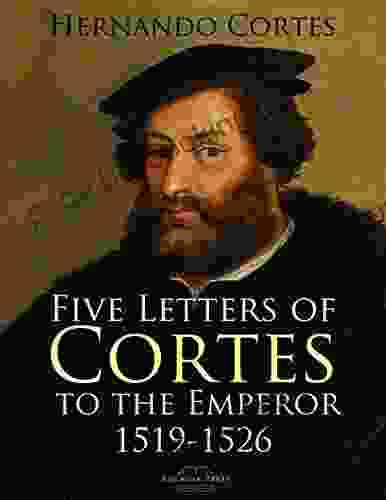
 Theodore MitchellFive Letters of Cortés to the Emperor 1519-1526: A Historical Tapestry of...
Theodore MitchellFive Letters of Cortés to the Emperor 1519-1526: A Historical Tapestry of... Jorge AmadoFollow ·7.6k
Jorge AmadoFollow ·7.6k Houston PowellFollow ·15.3k
Houston PowellFollow ·15.3k Adrien BlairFollow ·15.5k
Adrien BlairFollow ·15.5k Vince HayesFollow ·16.7k
Vince HayesFollow ·16.7k Christian CarterFollow ·6.3k
Christian CarterFollow ·6.3k Jason ReedFollow ·6.5k
Jason ReedFollow ·6.5k Mario Vargas LlosaFollow ·8.6k
Mario Vargas LlosaFollow ·8.6k Aldous HuxleyFollow ·3.9k
Aldous HuxleyFollow ·3.9k
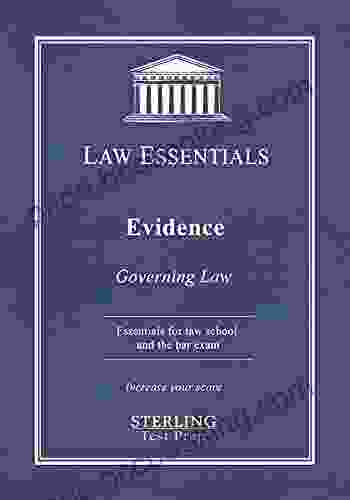
 Marvin Hayes
Marvin HayesGoverning Law for Law School and Bar Exam Prep: Your...
Unlock the Secrets of...

 Sidney Cox
Sidney CoxUnveiling the Epic Tales of Whiskey, War, and Military...
In the tapestry of history,...

 Victor Turner
Victor TurnerGoverning Law for Law School and Bar Exam Prep: The...
What is Governing...

 Robert Browning
Robert BrowningSterling Test Prep MCAT General Chemistry Practice...
: Embark on Your MCAT General Chemistry...
4.6 out of 5
| Language | : | English |
| File size | : | 1498 KB |
| Text-to-Speech | : | Enabled |
| Screen Reader | : | Supported |
| Enhanced typesetting | : | Enabled |
| Word Wise | : | Enabled |
| Print length | : | 415 pages |


